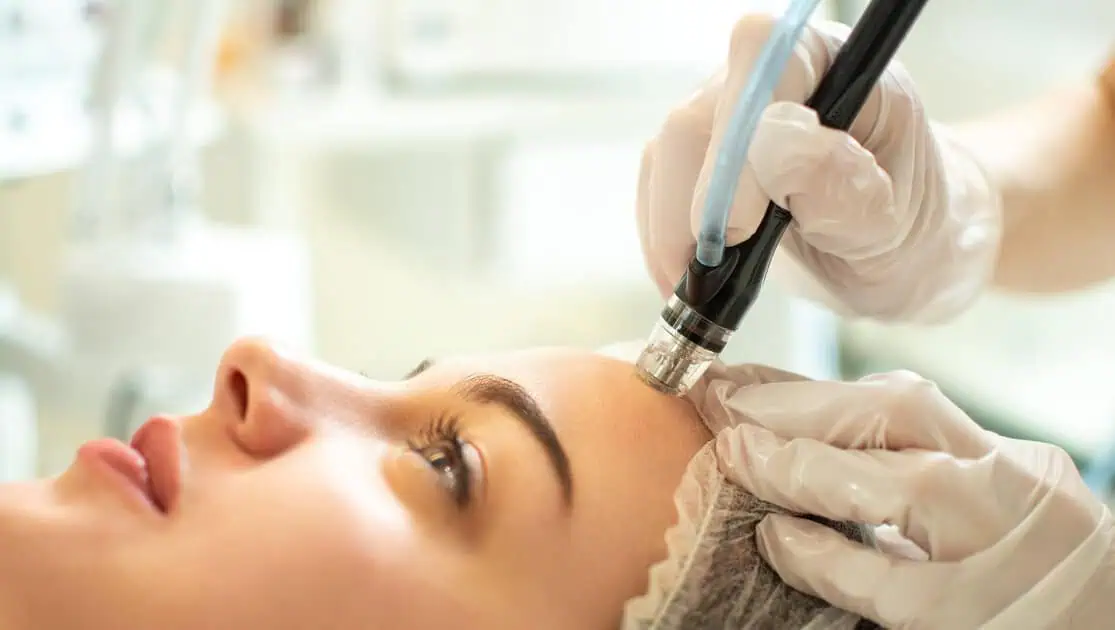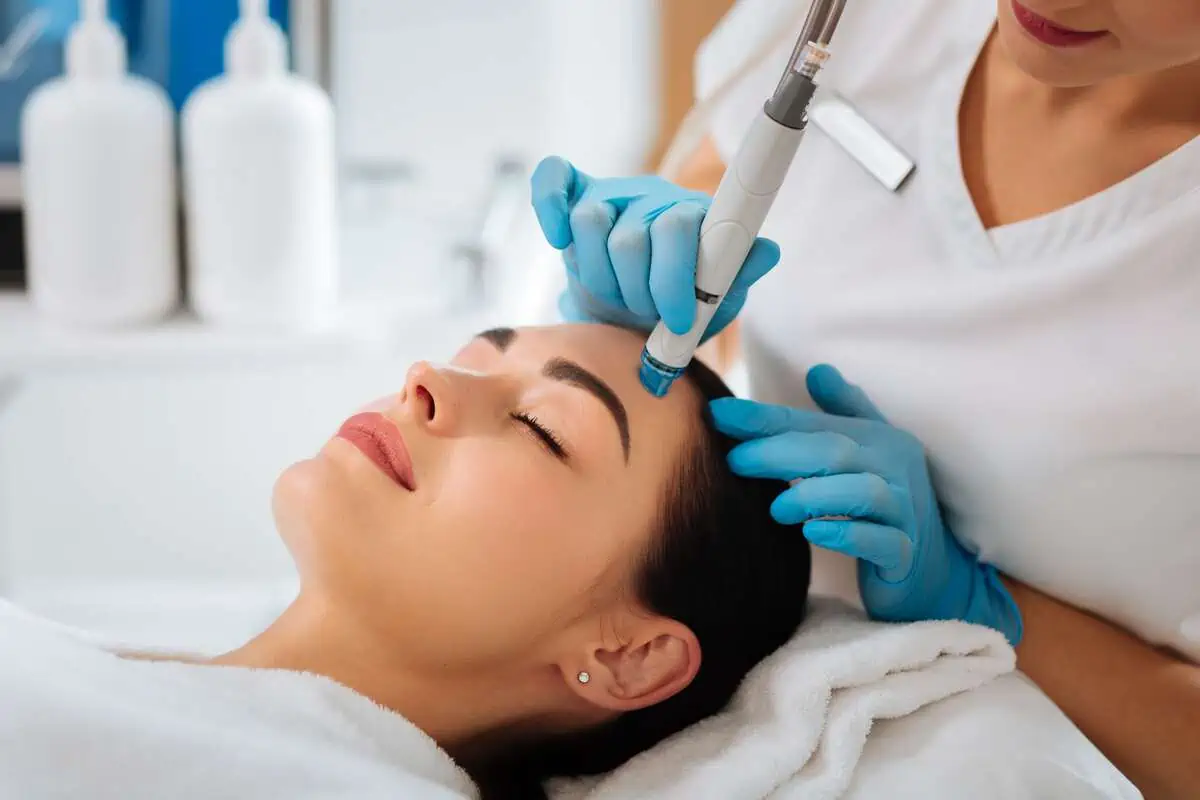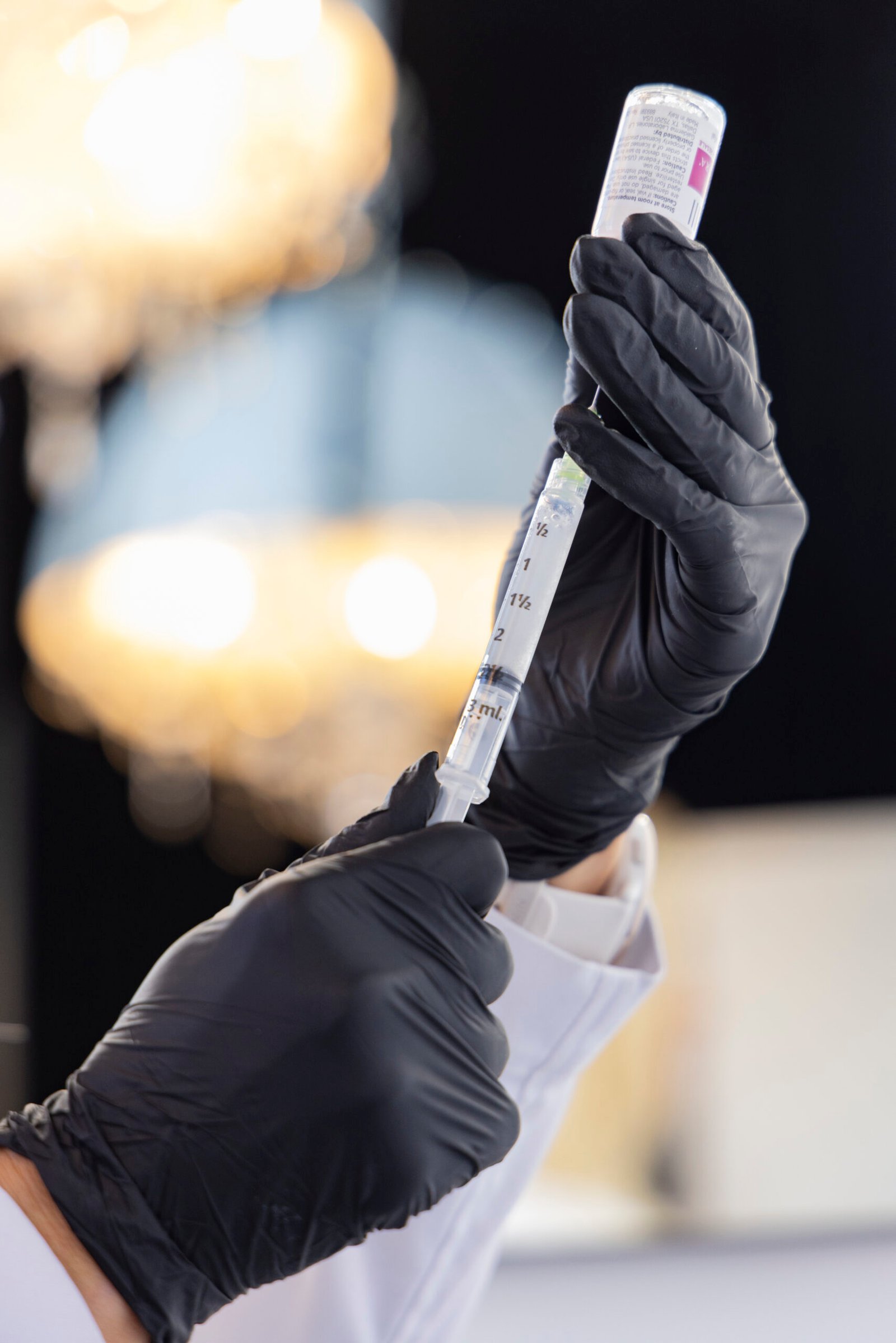Are you tired of battling stubborn acne and the scars it leaves behind? It’s time to say goodbye to your skin woes and hello to a radiant, clear complexion. Discover the transformative power of chemical peels, a cutting-edge skincare solution that promises permanent acne and acne scar reduction. In this comprehensive guide, we’ll take you through everything you need about chemical peel treatments, from their science to their life-changing benefits.
What is a Chemical Peel?
The Basics of Chemical Peels
A chemical peel is a skin-resurfacing procedure that uses a chemical solution to exfoliate the skin, removing the outermost layers to reveal fresh, unblemished skin. This treatment effectively addresses various skin concerns, including acne scars, fine lines, wrinkles, hyperpigmentation, and uneven skin texture.
Types of Chemical Peels
- Superficial Peels: Light peels use mild acids like alpha-hydroxy acid (AHA) to exfoliate the outer layer of the skin gently. They’re ideal for treating mild acne and light pigmentation issues.
- Medium Peels: These peels penetrate the middle layers of the skin using more vital acids like glycolic acid or trichloroacetic acid (TCA). They are effective for moderate acne scars, deeper wrinkles, and pigmentation irregularities.
- Deep Peels: Using powerful acids such as phenol, deep peels target the deeper layers of the skin. They offer dramatic results for severe acne scars, deep wrinkles, and significant sun damage but require a more extended recovery.
The Science Behind Chemical Peels
How Chemical Peels Work
Chemical peels work by applying a solution that causes controlled damage to the skin layers, stimulating the body’s natural healing process. The outcomes are increased collagen production, the regeneration of new, healthier skin cells, and enhanced skin texture and appearance.
Benefits of Chemical Peels for Acne and Acne Scars
- Exfoliation and Cell Turnover: Chemical peels successfully clear pores and lessen acne breakouts by hastening the shedding of dead skin cells and encouraging the creation of new ones.
- Scar Reduction: Chemical peels can significantly diminish the appearance of acne scars by removing the damaged outer layers of skin, promoting a smoother, more even skin surface.
- Collagen Boost: The treatment stimulates collagen production, essential for skin elasticity and firmness. This helps fill in scars and improve overall skin texture.
- Improved Skin Tone: Chemical peels can reduce the appearance of acne scars by balancing out skin tone and reducing hyperpigmentation.
- Long-Lasting Results: Unlike temporary treatments, chemical peels offer long-lasting improvements. With the proper aftercare, the results can be permanent.
The Chemical Peel Treatment Process
Consultation and Skin Assessment
Before having a chemical peel, you should seek advice from a registered dermatologist or skincare specialist. During this session, your skin type, issues, and goals will be evaluated to help you choose the right peel type and strength.
Pre-Treatment Preparation
- Discontinue Certain Skincare Products: To prevent irritation, avoid using retinoids, exfoliants, and other potent skincare products a week before the treatment.
- Use Sunscreen: Shield your skin from the sun to reduce the chance of problems and guarantee the best outcomes.
- Follow a Gentle Skincare Routine: To maintain calm and hydrated skin, use a gentle cleanser and moisturizer.
The Procedure
On the day of the treatment, the process typically involves the following steps:
- Cleansing: We’ll thoroughly cleanse your skin to eliminate oils and pollutants.
- Application of the Chemical Solution: Your skin will be treated with the selected chemical solution. A tingling or somewhat burning sensation is possible; this is a regular, transient symptom.
- Neutralization (if required): For certain types of peels, a neutralizing solution will be applied after the desired peeling time is achieved.
- Post-Peel Care: After the peel, your skin will be soothed with a moisturizer and sun protection. You might notice some redness and peeling over the next few days, part of the natural healing process.
Post-Treatment Care
- Avoid Sun Exposure: Use sunscreen to shield your skin from direct sunlight, and stay indoors during the busiest times of the day if possible.
- Moisturize Regularly: Keep your skin hydrated to support healing and reduce dryness and flaking.
- Do Not Pick or Peel: Avoid picking at peeling skin, which can cause infection and scars.
- Follow Professional Advice: Adhere to any additional aftercare instructions from your dermatologist.
Why Choose Chemical Peels Over Other Treatments?
Comparison with Other Acne and Scar Treatments
Chemical peels offer several advantages over other treatments:
- Non-Invasive: Unlike laser treatments and microneedling, chemical peels are non-invasive, making them a safer option with minimal downtime.
- Customizable: Chemical peels can be tailored to suit individual skin types and concerns, providing personalized treatment plans.
- Cost-Effective: Compared to high-end laser treatments, chemical peels are more affordable while delivering comparable results.
Longevity of Results
One of the standout benefits of chemical peels is their ability to provide long-lasting results. With proper aftercare and maintenance, skin texture, tone, and clarity improvements can be permanent, making it a worthwhile investment in your skin’s future.
Addressing Common Concerns and Misconceptions
Is the Procedure Painful?
While you might experience a tingling or mild burning sensation while applying the chemical solution, the discomfort is usually manageable and temporary. Your dermatologist can provide options to minimize any discomfort.
Are There Any Risks?
In general, chemical peels are safe when performed by trained specialists. However, like any cosmetic operation, they have some side effects, such as transient redness, peeling, and, in rare instances, scarring or pigmentation changes in the skin. These hazards can be reduced with proper aftercare and according to your dermatologist’s advice.
How Many Sessions Are Needed?
The number of sessions required depends on your skin condition and the type of peel used. Some individuals see significant improvement after just one treatment, while others may need a series of peels for optimal results. Your dermatologist will create a personalized treatment plan to meet your specific needs.
Takeaway
Are you ready to unveil your best skin ever? At The Steele Vault Skincare + Boutique, we specialize in transforming your skin with our premium chemical peel treatments. Whether you’re battling stubborn acne, enduring unsightly scars, or simply seeking a fresher, more radiant complexion, our expert team is here to help you achieve your skincare goals.
Transform your skin with The Steele Vault Skincare + Boutique’s customized chemical peel treatments. Enjoy permanent acne and scar reduction, improved texture, and a radiant complexion. First-time clients save 20%! Book now and reveal your best skin ever. Book your consultation now and discover the secret to flawless skin at The Steele Vault Skincare + Boutique. Your journey to clear, radiant skin starts here.







